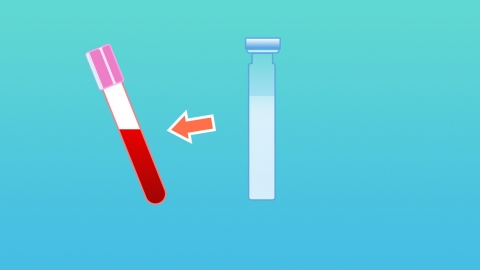What does it mean if a child's CRP level is high?
Generally, elevated CRP levels in children may be caused by factors such as intense physical activity, vaccination, acute upper respiratory tract infection, acute bronchitis, or acute pyelonephritis. It is recommended to seek timely medical consultation to identify the underlying cause and receive appropriate treatment under a doctor's guidance. Detailed explanations are as follows:

1. After intense physical activity: When children engage in strenuous exercise, their bodies may enter a state of stress, which can temporarily elevate CRP levels. Usually, there are no other discomforts. Ensuring adequate rest for the child and avoiding intense activity for a short period typically allows CRP levels to return to normal within 1–2 days.
2. After vaccination: When vaccines enter a child's body, they stimulate the immune system, potentially causing a temporary rise in CRP levels. Some children may also experience mild fever. Close monitoring of body temperature, encouraging the child to drink more warm water, and avoiding excessive bundling usually result in CRP levels returning to normal within 1–3 days.
3. Acute upper respiratory tract infection: Often caused by bacterial infections such as Streptococcus pneumoniae or Haemophilus influenzae, this condition may present with symptoms such as coughing, sore throat, and fever, along with elevated CRP levels. Children may follow medical advice to use medications such as amoxicillin granules, cefaclor dry suspension, or azithromycin dry suspension for treatment.
4. Acute bronchitis: Frequently caused by bacterial infections leading to inflammation of the bronchial mucosa, this condition may cause symptoms such as coughing, sputum production, and wheezing, along with elevated CRP levels. Children should follow medical advice to use medications such as cefixime granules, amoxicillin-clavulanate potassium dry suspension, or Xia'er Feire Kechuan granules to alleviate symptoms.
5. Acute pyelonephritis: Mainly caused by bacterial infections such as Escherichia coli affecting the renal pelvis, this condition may lead to symptoms including fever, frequent urination, and urgency, accompanied by elevated CRP levels. Children may follow medical advice to use medications such as ceftriaxone sodium injection, amoxicillin-clavulanate potassium injection, or levofloxacin injection for treatment.
In daily life, ensure children get sufficient rest and avoid excessive fatigue. Their diet should be light and easily digestible, with increased consumption of fresh vegetables and fruits to supplement vitamins. Maintain good personal hygiene, encourage frequent handwashing, and avoid crowded, poorly ventilated places to reduce the risk of infection.








